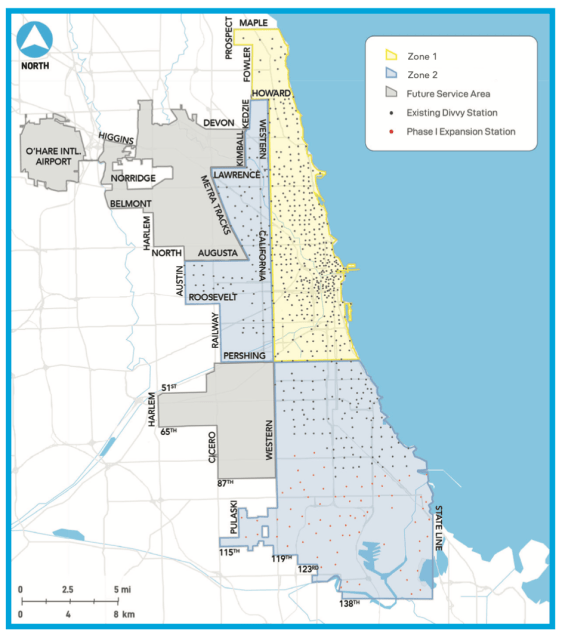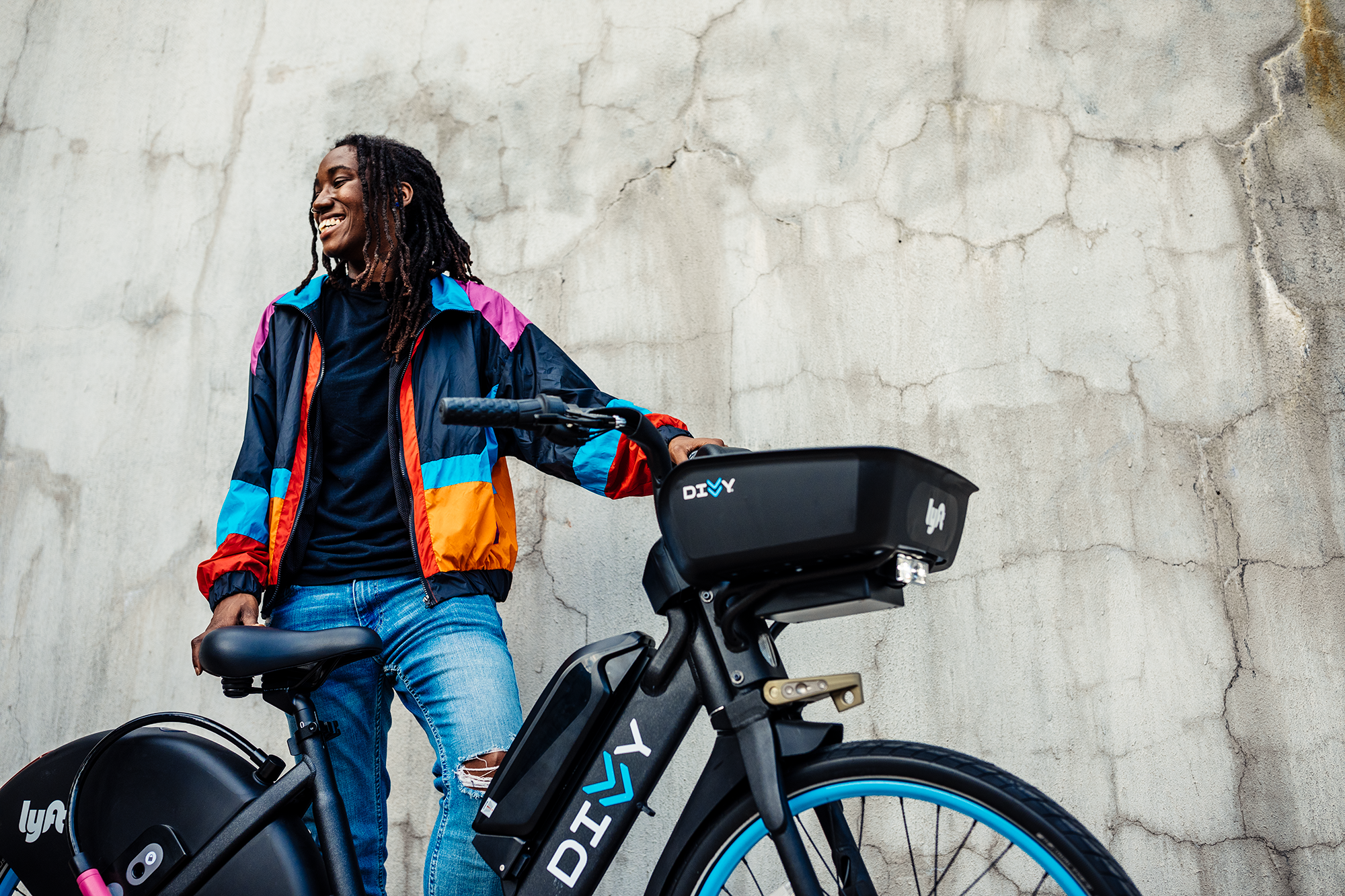After breaking the news last week about Divvy making its electric bikes slower, I'm afraid I have to share some more info that will annoy bike-share users. On January 1 the price of annual full-price memberships will go up from the current $99 to $108. Single rides will also see a price hike, from $3 to $3.30. This is in keeping with the current contract between Lyft, the Divvy concessionaire, and the city of Chicago, which allows bike-share prices to go up a maximum of 10 percent a year.
On the bright side, $5 Divvy for Everyone memberships, available to Chicagoans making $35,310 or less, will stay at the same price, as will corporate and college memberships. The $15 cost of a 24-hour pass is also unchanged.
And, in fairness, $108 for a year's worth of unlimited 45-minute rides on Divvy's blue non-electric bikes (there's a per-minute surcharge to use the black e-bikes north of Pershing Road and east of Western Avenue) is still a good deal. Annual memberships debuted for $75 in 2013, and went up to $99 in January 2016.

Of course, a global respiratory pandemic, when people are seeking socially-distanced transportation, as well as an economic crisis, is not a great time to make people pay more for bike share. "There's never a good time to raise prices," said Divvy spokesman Jordan Levine, who added that the move is being announced now to give customers whose memberships will expire soon some advance notice.
Levine said the reason for the price hike for regular memberships is to help fund Divvy's current citywide expansion, while keeping the Divvy for Everyone price low. "Our expansion to the Far South Side is nearly complete, with 3,000 e-bikes deployed, in addition to our existing fleet of 6,500 classic bikes, and we'll be expanding the system to other parts by summer 2021." He said that the neighborhoods for next year's expansion haven't been finalized yet, "but we're pushing to cover the entire city as promised."
As for the new 15 mph cap on the e-Divvies, which was supposed to be a thing when the black bikes debuted in June but wasn't implemented until mid-November, Levine referred me to the Chicago Department of Transportation, which oversees the system, for most questions. Many e-bike enthusiasts have grumbled that the now-slower bikes are less fund to ride than they were, and some have complained of an unsafe-feeling braking sensation that kicks in when the bike hits 15.
Last night I took my first spin on an electric Divvy since the cap was turned on, and it didn't seem dangerous to me. However, at 15 there is a grinding sensation, sort of like an exercise bike with the resistance turned on, which is mildly annoying. Levine said Divvy's operations department thinks that may simply be due to riders "feeling the full force of the 70-pound bike with no pedal assist," but that doesn't really explain the feeling of mechanical resistance.
However, Levine said that the speed cap is "by no means permanent," and CDOT and Divvy will be evaluating it in the future. But it will probably stay in place throughout the colder months "in the interest of safety, especially as streets get icy during the Chicago winter."






